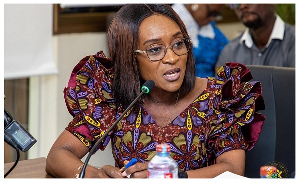B&FT yesterday held its fifth in the series of ‘Ghana’s Most Respected CEOs Breakfast Series’ with the theme ‘Bringing the Economy Back to Life: The Role of Banking and Finance’, where the Country Director for Deloitte Ghana, David Kwadwo Owusu, who was a panel speaker noted that with the end of COVID-19 still unknown, banks need to capitalise on new opportunities and innovations and take decisions which guarantee their survival amid and beyond the pandemic.
He added that banks will have to consider liquidity management, risk management and profitability strategies to survive the storm. Mr. Owusu also stated that banks should take advantage of opportunities stemming from the surge in the use of online platforms.
Without doubt, COVID-19 has increased the use of technology in the banking space which has accounted largely for many of them staying afloat and not facing major liquidity challenges.
There is little doubt that people are now doing a lot more transactions via the Internet, and so banks need to be a lot more innovative and capitalise on the new opportunities.
If there is any sector that can stimulate and revive the economy amid the devastating impacts of the Coronavirus pandemic, then it is the banking and financial sector.
The virtual webinar brought together business leaders and banking experts to deliberate on how financial institutions can successfully navigate the COVID crisis, support businesses, revitalise and revive the economy, and ultimately spur economic growth.
Measures introduced by the central bank in March to reduce the negative impacts of Coronavirus on the financial sector and economy include a reduction of the Primary Reserve Requirement from 10 percent to 8 percent, and reduction of the Capital Conservation Buffer (CCB) for banks from 3 percent to 1.5 percent.
The Bank of Ghana also ordered Banks and Specialised Deposit-Taking Institutions (SDIs) to suspend the declaration and payment of dividends or distribution of any reserves to shareholders, and for making any irrevocable commitments until further notice.
However, banks are still waiting on the central bank to offer specific guidelines on the measures introduced, since being without timelines and durations makes planning difficult, according to John Awuah – Deputy CEO of the Ghana Association of Bankers.
Business News of Saturday, 8 August 2020
Source: thebftonline.com













